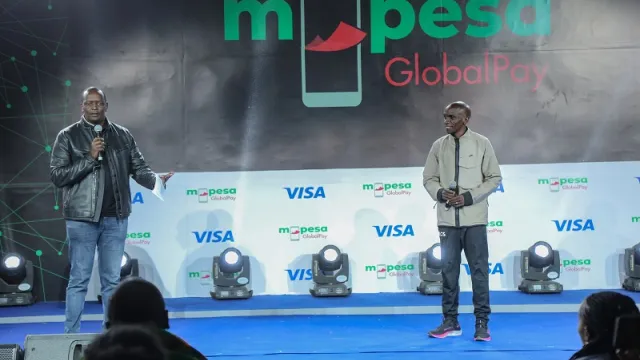How M-PESA is defining the future of business payments

How M-PESA is defining the future of business payments
There is a running joke that you would rather pay for an air ticket to tour a foreign country and buy a particular product there since it would cost you less than purchasing the same good from a local retailer.
For a long time, the purchase of products from foreign markets has been controlled by local distributor channels, which take advantage of the asymmetry of information to make a killing on imported goods.
But the internet has democratized the marketplace and changed the landscape where you can compare prices at retail shops in the US and buy goods directly from outlets abroad without going through the ever-costly bridge of middlemen.
However, for a long time, this space has been for a select group of buyers with VISA cards, foreign currency accounts, or banks that offer counterpart settlements leaving out a significant number of potential customers from Kenya.
What the newly launched M-PESA Global does is to enable anyone with a mobile phone to walk into a virtual global store, choose an item, and pay with their Kenya shillings account in their mobile wallet.
You can pay international online merchants such as Netflix, Amazon, AliExpress, etc using M-PESA GlobalPay, a virtual VISA card that is linked to your M-PESA account.
The M-PESA GlobalPay virtual card enables you to make payments for goods and services to overseas online merchants using your card details.
Millions of M-PESA users can now purchase goods and services in more than 200 countries under a deal with VISA that further cements the platform’s leading position as a mobile money service provider.
One can settle a transaction from a minimum of one US dollar or Kes110 and a maximum of Kes150,000 per transaction with the highest transaction limit being Kes300,000.
Read also: Safaricom and Visa launch M-PESA GlobalPay Visa Virtual Card
What's more, you will not be charged to make payments for online purchases; the transaction levy is zero.
Safaricom only applies a Forex Exchange markup of 3.5 percent on the prevailing forex rate to exchange from billing currency (Kes) to the currency at the time of purchase, such as USD, and GBP among others.
Safaricom has been ahead of the curve among its rivals in finding new solutions for its customers and this perhaps comes at a very unique time in the country.
Kenya’s younger demographic are more attuned to global market trends and is the driving force behind one of the most vibrant e-commerce ecosystems in Africa.
The Kenyan e-commerce market has shown steady growth and is expected to result in an approximated market volume of $2 billion by 2024 according to Statista.
Although the exact estimates of the current household use of e-commerce are not available, a joint 2016 National ICT survey between the Authority and the Kenya National Bureau of Statistics (KNBS) established that 39 percent of private enterprises are engaged in e-commerce.
This shows just how pervasive e-commerce has become as buyers and sellers meet, exchange goods and services, and pay for purchases through mobile money or banking networks.
The biggest threat of this has been fraud, low-quality products, double payments, and verification.
In case you dispute a payment, you may contact the telco's Customer Care, visit their retail shops or access the dispute resolution form that is published on the Safaricom Website to lodge a complaint.
On receipt of a duly lodged dispute form, Safaricom endeavors to contact VISA for a swift resolution. The expected time for resolution of a dispute depends on the nature of the case as will be determined by Safaricom and VISA.
If the dispute is a result of a transaction authorization error, for instance, Safaricom plans to resolve it within 72 hours. If the dispute is between you and the participating retailer, however, the maximum resolution time is 45 working days.



